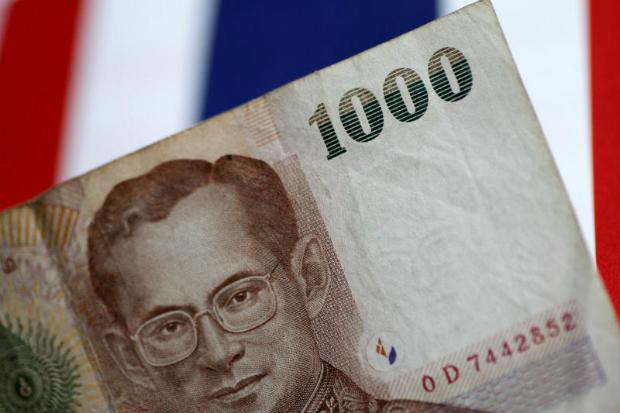Thai ‘reluctance to invest abroad’ said to boost baht
If recent history is anything to go by, argue some, letting Thais invest more money abroad is unlikely to spur major outflows, and that will mean continued firmness for the baht currency – and continuing frustration for Thai exporters.
Authorities in Thailand, which has large current-account surpluses, are trying to get citizens to invest elsewhere, to help contain an uncomfortably strong baht.
On Monday, the central bank relaxed foreign exchange rules, letting more Thais buy securities overseas and commercial banks lend baht to non-residents for investment in Thailand and the Greater Mekong sub-region.
The immediate reaction was telling: instead of weakening, the baht hit a near 23-month high of 33.94 per dollar. In part, that was because some investors expected the Bank of Thailand (BOT) to introduce capital controls to cool a currency that’s gained more than 5% against the dollar this year, competing with the Malaysian ringgit to be Southeast Asia’s strongest performer.
The baht was at 33.90 at Wednesday’s close, compared with 34.07 before Monday’s announcement and 34.25 on June 2.
Past moves to try to weaken the baht have failed. Some business analysts believeThais simply don’t like to invest in foreign assets, in contrast with citizens in other economies with sizable current-account surpluses. According to Kasikornbank in Bangkok, Thailand had the world’s third largest surplus in 2016 – 11.3% of gross domestic product, trailing only Singapore and Taiwan.
Thailand began gradually relaxing curbs on capital flows in April 2015. But Association of Investment Management Companies Industry data shows foreign assets in mutual funds grew to 1 trillion baht ($29.40 billion) from about 900 billion since then, while overall mutual fund assets climbed to 4.8 trillion baht from about 4 trillion baht.
“Thais still want to invest more at home,” said Saharat Chudsuwan, head of wealth advisory at Tisco Asset Management in Bangkok.
Loosened limits
Drawn by low interest rates – the benchmark is 1.50% – foreign investors have purchased 13.34 billion baht in equities and 136.44 billion baht in government debt this year, according to Maybank analysts.
The 2015 measures loosened limits on foreign currency deposits and property purchases. The Thai central bank later allowed direct purchases of overseas equities and derivatives by qualified investors, and relaxed the wealth threshold for such investing.
Thai business groups complain about the baht’s strength.
“The baht’s rapid appreciation since late May may hurt Thailand’s competitiveness,” said Kalin Sarasin, chairman of the Thai Chamber of Commerce and the Board of Trade, urging smaller exporters to hedge against currency risks.
Jane Namchaisiri, Federation of Thai Industries chairman, said the central bank should consider additional short-term measures in case volatility picks up.
Thailand is treading carefully after a 2006 episode that tarnished its reputation. It imposed capital controls, triggering a 15% plunge for the stock market. The controls were later aborted.
Trade surplus scrutiny
Decisive moves with its currency now would bring extra scrutiny as Washington is monitoring countries that run large trade surpluses with the United States. Thailand’s surplus in 2016 was $18 billion, the 11th biggest.
Thailand’s FX reserves have been rising as a result of the BOT’s efforts to contain baht appreciation in the face of a massive current account surplus, analysts at ANZ said.
Headline reserves are $184 billion but a $29 billion asset on the central bank’s forward book implies total reserves are about $213 billion.
Since April, the central bank has been reducing the size of its weekly bond issues, in a bid to curb the incentives for short-term capital inflows to park their funds in BOT bonds.
Assistant Governor Chantavarn Sucharitakul told Reuters the BOT has made “an adjustment to the combination in the use of its monetary absorption instruments”.
There’s been an increase in the FX swaps used as an instrument to absorb baht liquidity, she said.
Kobsidthi Silpachai, head of capital markets research at Kasikornbank, said that given Thailand’s large current account surplus “outflows have to be supplemented by reversals of earlier foreign debt portfolio flows to have a meaningful impact on the baht”. ($1 = 33.90 baht)
Source: http://www.bangkokpost.com/business/news/1264854/thai-reluctance-to-invest-abroad-said-to-boost-baht


 Thailand
Thailand




